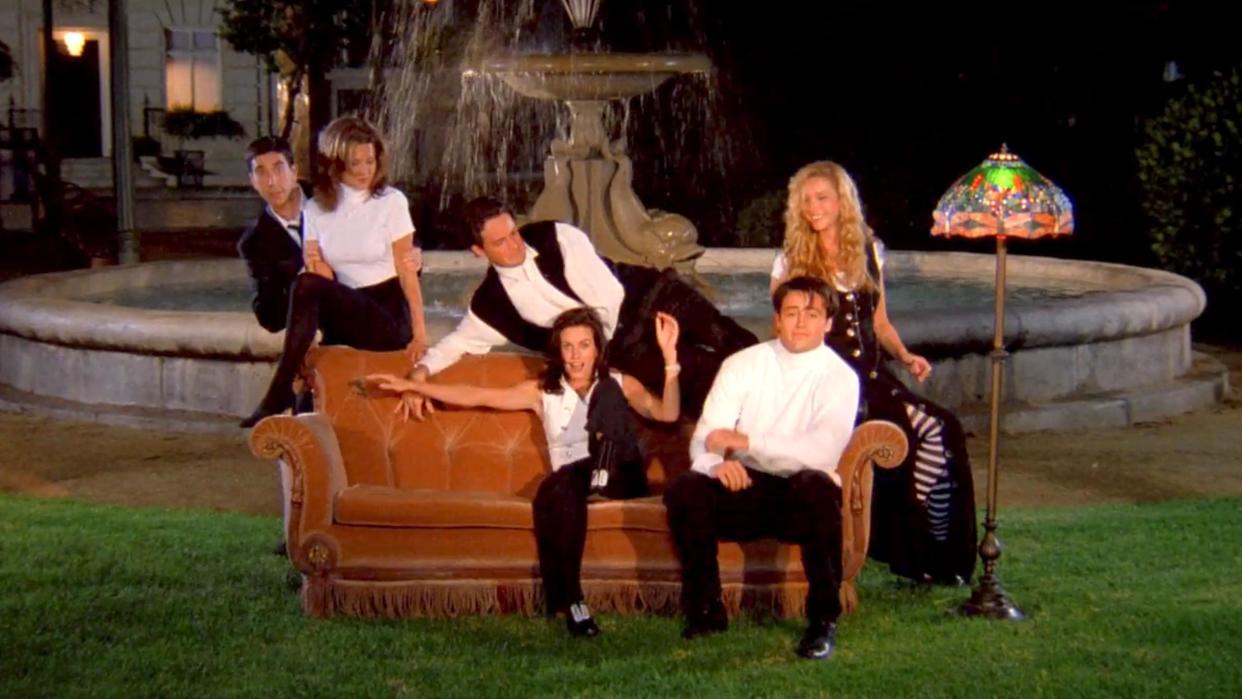Stop trying to make the next Friends

In the 25 years since Friends first burst on the scene, so many shows have tried to emulate the lightning-in-a-bottle magic that helped make the NBC sitcom one of the best shows to ever air. Whether you loved or hated (or even felt indifferent about) Friends, its legacy as one of the most successful comedies in the history of TV just can’t be denied. So it’s no surprise that every network has tried time and time again to make the next Friends. Just like with Lost and any other show that grows to become a pop culture-defining hit, everyone tries to replicate that same success, capitalizing on what consumers are responding to in the hopes of making the next great TV show.
But what TV networks and executives fail to understand is that Friends didn’t invent some revolutionary new concept for TV. If you take a look at what Friends was about, the premise of the show is actually quite simple: a group of friends (duh) dealing with life’s myriad ups and downs. The six core Friends — Rachel (Jennifer Aniston), Monica (Courteney Cox), Phoebe (Lisa Kudrow), Chandler (Matthew Perry), Joey (Matt LeBlanc), and Ross (David Schwimmer) — started out as twentysomethings navigating work, relationships, and shenanigans but evolved into (somewhat) more mature thirtysomethings dealing with marriage, kids, and the ever-growing responsibilities of getting older. They were hilarious, relatable, but most of all, they were friends.
At the beginning of the series, back in 1994, the connections between the six characters were tenuous and circumstantial. Monica and Ross were siblings, Rachel was Monica’s high school friend (and Ross’ crush), Chandler was Ross’ college roommate, Phoebe was Monica’s former roommate, and Joey just happened to answer Chandler’s random roommate ad. They were all connected in some way but weren’t a real friend group. Of course, over the course of 10 seasons, they all grew to be a kind of found family that happens to everyone in their 20s and 30s. This isn’t a groundbreaking idea — it’s just life. What really made Friends into the mainstream success that it was during its 10 years on air and all throughout the 15 years after it ended is the quality of the writing.
Again, this isn’t some revolutionary idea. The jokes, plot, and relationships worked on Friends because the writing was absolutely, undeniably stellar. You can have the best, most complex, exciting idea for the premise of a TV show and it will still crash and burn if the writing is poor quality. Friends was the perfect combination of comedy and heart, and it got viewers invested because of the emotion that went hand-in-hand with the laughs. And all the best comedies that have debuted in the wake of Friends succeeded for that same reason.
That ’70s Show, How I Met Your Mother, Happy Endings, New Girl, and, yes, even The Big Bang Theory weren’t trying to copy Friends. Sure, they were all half-hour comedies that were about a group of friends. But each series was unique in its own way. That ’70s Show was a period piece about friendships, relationships, and families about a bygone era. How I Met Your Mother was a high-concept show that managed to combine comedy with mystery and complex interwoven story threads. Happy Endings, arguably the show most inspired by Friends, was about a group of six best friends in a city (Chicago instead of New York), but begins when the crew is fractured by one person leaving another at the altar and follows each relationship as they traverse new, complicated terrain. New Girl and The Big Bang Theory reveled in their hyper-specific, goofy characters, subverting classic stereotypes and tropes along the way.
Each of these successful, long-running comedies (well, except Happy Endings — it deserved so much more than three seasons!) charted a new path on TV after Friends. Instead of trying to imitate a proven successful formula, they took risks and did something different. And those risks paid off. So instead of copying a legendary show, hoping to capture that same fandom and spark, invest in talent, whether that means writers, actors, directors, or producers. Try new ideas instead of rehashing the same one over and over again. Stop trying to make the next Friends — or, for that matter, rebooting, reviving, and remaking classic, iconic comedies. Just make the next great TV show about friends, whatever that may look like.
And maybe in 25 years, we’ll be talking about that show in the same way we’re celebrating Friends today.
Related content:

